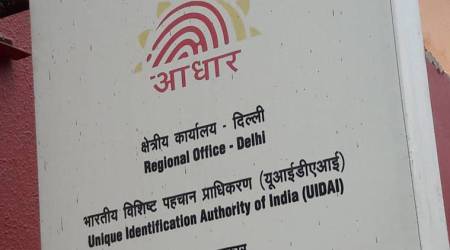 The bench headed by Chief Justice of India, Justice J S Khehar had reserved the verdict on the matter after hearing a clutch of petitions challenging the Centre’s move to make the Aadhaar mandatory for availing social and welfare schemes. (AP Photo)
The bench headed by Chief Justice of India, Justice J S Khehar had reserved the verdict on the matter after hearing a clutch of petitions challenging the Centre’s move to make the Aadhaar mandatory for availing social and welfare schemes. (AP Photo)
A nine-member jury of the Supreme Court on Thursday ruled unanimously that the right to privacy is a fundamental right enshrined under Article 21 of the Indian constitution. The bench headed by Chief Justice of India, Justice J S Khehar had reserved the verdict on the matter after hearing a clutch of petitions challenging the Centre’s move to make the Aadhaar mandatory for availing social and welfare schemes. While the right to privacy has come into forefront of a number of controversies in various countries in the past few years, the explicit definition of it has remained unclear in most instances. Here is a look at how privacy laws are treated other countries.
Germany
A horrific history of Germany under the Nazi regime, facing constant surveillance from the government, followed by persecution, has ensured that the country has emerged extremely cautious of the threat of administrative attempts at intruding into personal lives of individuals. Over time the Germans have ensured that privacy laws in the country evolved and remain updated to match with the social and technological necessities of the time. At present, it remains one of the strictest countries to enforce privacy laws. In the recent past in fact, the privacy law Germany has caused much discomfort to organisations like Facebook and Google which run on the basis of the freedom of the internet.
United States
While the US constitution does not mention right to privacy explicitly, the Supreme Court has on various instances interpreted various amendments to state that the right does exist. In particular the 1974 Privacy Act was passed with the intention of protecting citizens from any federal agency using their records arbitrarily. It requires agencies to maintain an account of the disclosure of records they maintain. Further, a federal law maintains the privacy of the social security number from government inquiries, except in cases of when the status on taxes being paid has to be produced and in the case of child support.
Canada
First brought into place in 1977 as part of the Canadian human rights act, the privacy law in Canada has evolved over time. Initially, the law was introduced as a means of data protection. In 1983, the law was expanded to include a check on how the government can access and disclose personal information. The last time the privacy law was redefined and developed was in January 2012 when the Canada government stated that the common law recognised the right to personal privacy as a “tort of intrusion upon seclusion.”
Sweden
Despite being one of the first countries of the world to give a personal identification number to its citizens, required to be used in every interaction with the State, Sweden is also one of the first countries to have a detailed statute on privacy laws online. The 1973 Data Act protected the privacy of personal data on computers. The right to protection of personal data is also found in the Swedish constitution.
European Union
The Data Protection Directive adopted by the European Union in 1995 regulates the processing of personal data within the European Union. Article 8 of the European Convention on Human Rights (ECHR) provides a right to protection of one’s private and family life subject to certain restrictions.

